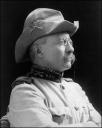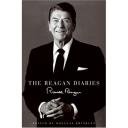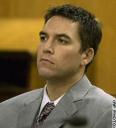This is not a new book. But it IS a classic. First published in 1981, it is still in print and has yet to be superseded.
The back-jacket blurb describes the writing as “highly readable and lively.” I’ll be more blunt. Stokesbury is an opinionated writer, and can be both witty and entertaining – not least when he is dismissing some bit of common wisdom which is actually wrong – urban legends of WW1. An example:
“The earliest submarines were far more dangerous to their own crews than to anone else, but by 1914, they had become usable weapons. The chief problem was that no one knew exactly what to do with them.”
or this bit on the Third Battle of Artois:
“All through October the men in field gray and in the new French uniforms of the famous “horizon blue” grappled with one another, and when they finally fell back exhausted it was as it had been before. The Germans still held the ridge, and it was just that much more thickly strewn with bodies.”
The book has much that will be familiar to even those with a casual acquaintance of World War 1:
- The startling German offensive that started the war and the frantic transportantion of French reserve forces to the battle of the Marne in a fleet of comandeered Parisian taxis
- The ill-fated “second front” planned by Churchill and fought by the Anzac troops in the Dardanelles
- The appalling battles of attrition fought at Verdun and on the Somme
Just as interesting, and of much significance for those who want to understand the later course of events in the 20th century are chapters on the Collapse of Russia, the United States Entry into the War, and Imperial Wars and Colonial Campaigns.
Through it all, Professor Stokesbury has a knack for summarizing and conveying both the essential details as well as what they mean and why they’re important. I highly recommend this as a resource for anyone who wants an understanding of WW1 that goes beyond just a few chapters in a survey textbook.
– Rob Shearer
Director, Schaeffer Study Center






 For Father’s Day, my wife gave me a copy of The Reagan Diaries.
For Father’s Day, my wife gave me a copy of The Reagan Diaries.
 But back to my disproportionate emotional response. Perhaps its because I’ve spent a lot of time with the Rien Poortvliet book, “Noah’s Ark.” The images of Noah building the ark, of the animals gathering and waiting patiently, of Noah and his family caring for them in the ark, and especially of Noah exercising his adamic dominion over the natural world are VERY powerful.
But back to my disproportionate emotional response. Perhaps its because I’ve spent a lot of time with the Rien Poortvliet book, “Noah’s Ark.” The images of Noah building the ark, of the animals gathering and waiting patiently, of Noah and his family caring for them in the ark, and especially of Noah exercising his adamic dominion over the natural world are VERY powerful.


